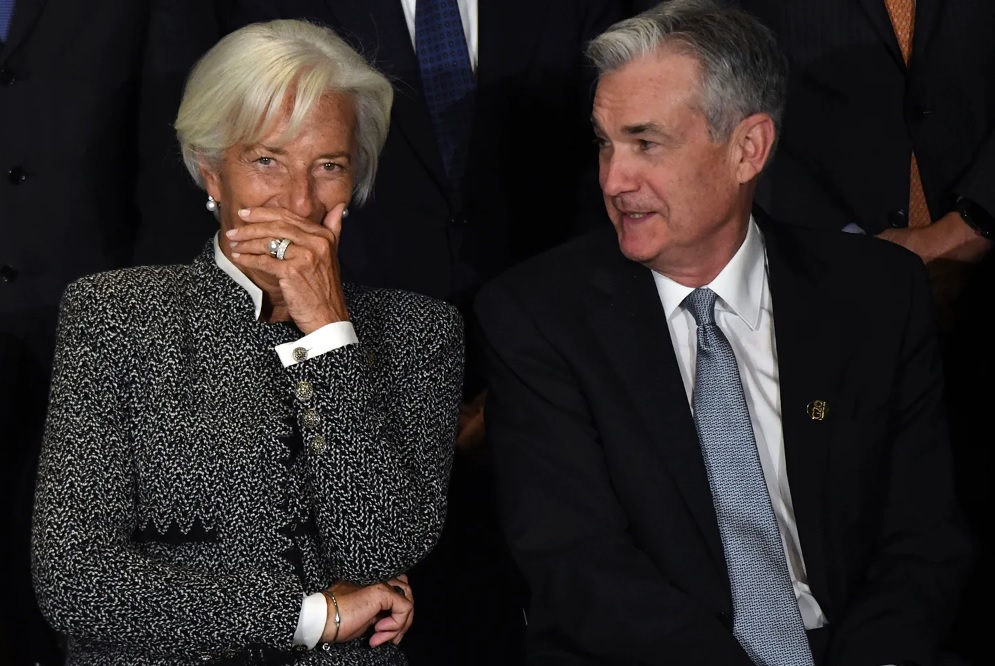Should central banks ignore the Fed?
That’s what we think other G10 central banks should – and will - do when they consider rate policy this year. It means that they should still push ahead with rate cuts even if the Fed does not.

>> The Fed could keep high rates longer than the ECB
You can see from the movement in market-based policy-rate expectations that perceptions of Fed policy are crucial when it comes to the outlook for rates elsewhere. Earlier this year, the market backed away from the assumption that the Fed could start rate cuts in the spring and reduce rates by around 150-bps in 2024. Right now, the market sees cuts starting in June with no more than 75 to 100-bps of cuts in all. Much of this repricing stemmed from some disappointing inflation data and robust employment growth in January.
Other countries/regions like the UK and euro zone did not see similar price and employment developments but both saw projected rate cuts this year scaled back and by even more than we saw in the US. It is as if the market is saying that, if the Fed has to go more carefully with rate cuts, others will be even more careful still, irrespective of whether their economic position is more conducive to steeper rate cuts. So, what if the Fed can’t cut rates at all this year? The implication is that the market would price out any prospect of rate cuts elsewhere, but is this justified?
The first question is whether the Fed will be forced to leave policy unchanged this year, or even hike again. Mr. Steve Barrow, Head of the Standard Bank G10 Strategy, thinks this is unlikely. His sense is that, having projected rate cuts for this year, the Fed is minded to provide some degree of monetary accommodation, not least because it will be aware of the global as well as domestic connotations of leaving policy unchanged. But context matters.
We are not saying for one second that if inflationary pressure rebuilds the Fed will still go ahead with rate cuts; it will not. However, if inflation just becomes stuck a bit above target then we think that the Fed will be more minded to cut rates than hold fast. How should other central banks respond if the Fed refuses to cut? Again, context is key and there are a couple of issues here.
The first is whether the same inflation stickiness, or increase, in the US is seen in other countries. If it is then the domestic case for rate cuts disappears and others would likely follow the Fed. However, Mr. Steve Barrow said that there is more price pressure in the US than elsewhere due to many factors such as the robust economy and the stance of fiscal policy. If the Fed is not cutting but the domestic case for rate cuts in other G10 countries is still strong, should they cut? Mr. Steve Barrow believes that they should – and will.
>> What if FED will not cut rates this year?
A second issue, though, is that even if the domestic case for rate cuts outside of the US remains compelling, central banks could be nervous about the international context. In Mr. Steve Barrow’s view, this pulls both ways. On one side, a lack of rate cuts from the Fed would likely tighten global financial conditions and that would enhance the case for other G10 central banks to cut rates. But on the flipside, if part of this tightening of financial conditions comes through a much stronger dollar this could diminish the case for rate cuts outside of the US, both on the basis that it could lift inflation via higher import prices, and because a steep fall in the local currency against the dollar could become a rout if rates are cut.
Central banks would want to avoid this as lowering policy rates could actually create tighter financial conditions if the induced currency plunge lifts inflation fears and lifts bond yields. This suggests that there could be a difference between how ‘riskier’ G10 – and EM – central banks react to stable Fed rates compared to those that might be less perturbed by the prospect of currency weakness, such as the ECB.
“Whatever central banks decide, there is a potential problem that a dogged determination to stick with rate cuts will pit central banks against the financial markets given how policy expectations are likely to move in other G10 countries if the Fed refuses to cut rates. While we don’t deny that stable Fed rates enormously complicates the situation facing other G10 central banks this year we believe that most should – and will – push ahead with rate cuts even if the Fed does not”, Mr. Steve Barrow said.








